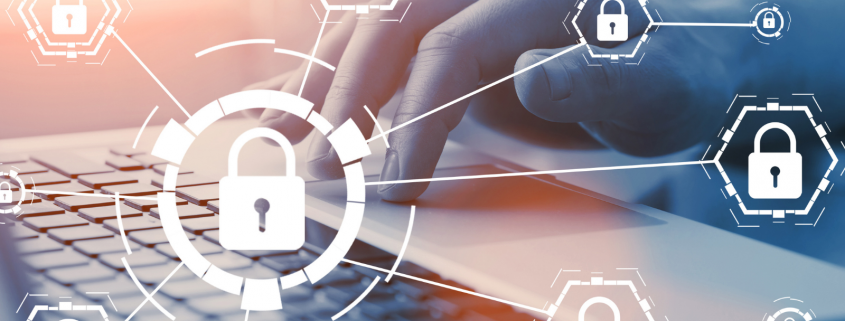5 Easy Ways to Protect Your Data
As our data becomes more and more valuable in today’s information-driven world, it’s become more essential than ever for individuals to protect their personal information from data breaches and hacks. A data breach occurs when personal or business data is accessed, disclosed without authorisation, or lost. Data breaches happen more often than you might think, so it’s important to be proactive when it comes to your digital security. We’ve compiled a list of 5 easy steps you can take to protect your data today.
1. Use a VPN
A VPN (i.e. a virtual private network) is a popular internet security method that works to provide users with privacy and anonymity. VPNs achieve this by scrambling a user’s internet protocol (IP) address so that their online movements become unreadable. VPNs are advisable for anyone who owns a device, but they’re particularly essential for those people who use public WiFi hotspots. Unless you’re logged into a private WiFi network that requires a password, any data transmitted during an online session in a public area is vulnerable to unauthorised access by strangers using the same network. A VPN adds an extra layer of security in these scenarios by protecting users’ personal information from strangers.
VPNs can be a confusing world to navigate, so if you need some advice, don’t hesitate to get in touch with an IT professional for clarification. VPNs can (and in fact should) be used on mobile devices, so be sure to have it installed on your mobile phone too to ensure that your data is being protected across all your devices.
2. Use strong passwords
Creating and using strong passwords is one of the most effective ways of protecting your online identity. It’s important to ensure that you’re not using the same password across multiple platforms, so if you’ve been using ‘password123’ as your go-to password across multiple sites, it’s time to ditch it.
Password generators are a great way of generating long, complex passwords that meet security standards. Password generators should be used simultaneously with password managers, which work to store all your passwords safely and securely across one platform. There are plenty of platforms out there, so talk to your IT professional to determine the best one for yourself, your family, or your business.

Hacking software can test more than 100,000,000,000 password combinations per second, meaning that your self-generated passwords probably aren’t as secure as you might think. That’s why you should add additional security by implementing two-factor authentication across all your platforms. Two-factor authentication is a process that requires a user to verify their identity by entering a unique code sent to their mobile or email. It’s a great way of preventing unauthorised access to your data and information, so we always recommend our clients to set it up across all their devices.
3. Update your software and security regularly
Updating your software regularly and diligently is important because these updates often include fixes to identified security issues. We know all too well how easy it is to procrastinate software updates, especially when they take time away from our devices. But keeping your operating system and applications up to date is one of the best ways to protect your data from hackers and other malicious actors. You should be updating all of your devices regularly – whether it be your business device or personal device, your mobile phone or your PC. If possible, we’d recommend setting your updates to ‘automatic’, so that your software will be updated automatically every time an update becomes available.
4. Back it up
As a general principle, it’s always a good idea to have a backup option available in the event that the original plan fails. This principle is just as true when it comes to computers and mobile devices. The reality is, any one of your devices could fail at any time. If you haven’t backed them up, you could lose thousands of important files within just a few seconds. That’s why backing up your devices regularly is an essential part of good digital hygiene.
Regularly backing up your devices will ensure that your photos, documents, and other sensitive data are protected not only from technical malfunctions but also from ransomware and other malicious activity. Back up your data to an online service, external hard drive, or both, for optimal data protection. Jim’s IT offers comprehensive backup solutions for both business and personal devices, so get in touch with one of our experts to learn more.
5. Don’t forget about your mobile devices
Given that mobile devices are now the device of choice for most people, it’s important not to neglect your mobile devices when you’re auditing your digital security. There are many types of phone hacking methods, ranging from hacking into a live conversation to hacking into data stored on a smartphone. That’s why it’s important to exercise the same level of caution when using your mobile devices and smartphones. Some basic phone security tips include:
- Changing your passcodes and passwords regularly
- Avoiding unsecured public wifi networks
- Regularly deleting browsing history, cookies, and cache
- Only downloading apps from your phone’s official AppStore

If you’re looking to protect your devices from hacking and other malicious activity, there are plenty of options available to you. Jim’s IT provides comprehensive data security services for families, businesses, and individuals. Our trained IT experts will assess your situation and create the perfect solution based on your unique needs. Your personal data is far too important to lose, so give Jim’s Group a call on 13 15 46 today to speak to an IT professional.
Related Jim’s Group News
– 5 of the Most Common IT Problems in 2021 and How to Fix Them
– How to Know if You Should Repair or Replace Your Computer.





